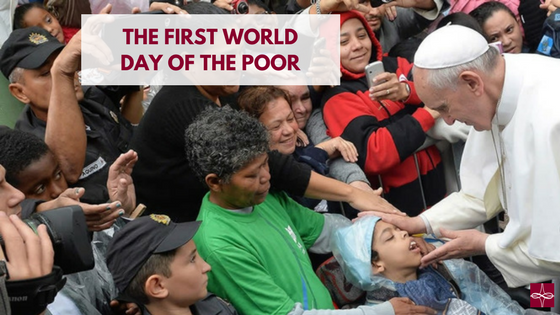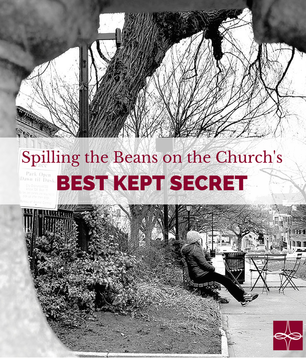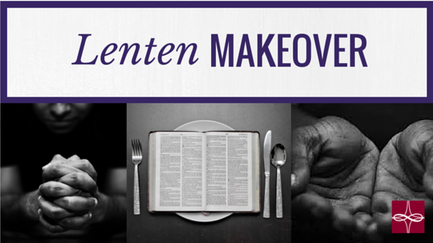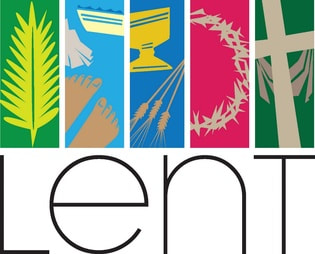|
This past September, a colleague and I traveled to three cities in the U.S. to discuss with local ministry leaders ways in which Catholic Relief Services (CRS) could engage young adults. Our basic question was this: How can CRS contribute to the conversations folks in their 20s and 30s are already having around issues of peace, justice, and global solidarity? Two very clear, and slightly discordant, ideas emerged. The first: folks in their 20s and 30s want to offer their time to serve those in need. The second: we as Church might do better to shift from doing good for a world in need to being good for our world. What do I mean by this? The instinct to do good—to be a service to others, to give of ourselves, to respond in charity to the Gospel invitation to love our neighbor—is something to be applauded. In fact, integrating service into young adult ministry was a priority we heard time and again during our conversations. But not all world-changing, do-good ideas are created equal. In fact, some can be quite harmful. (For one example from some of CRS’ work that illustrates this general point, check out our Changing the Way We Care initiative on orphanages.) I’m not saying we shouldn’t dedicate time, talent, and treasure to helping those in need—both in our own communities and around the world. But we should challenge ourselves to be intentional about our initiatives, to investigate the real impact of our efforts—both intended and unintended. We should also ask ourselves who we are really serving: our own sense of self-worth or the real common good. I write all this by way of reflection on Pope Francis’ calling for a World Day of the Poor, the first of an annually recurring day that begins November 19, 2017. (Click here to read about it in the pope’s own words.) When we think of poverty, our knee-jerk reaction may be to rush to the nearest shelter with old clothes in hand. It may be to donate to a worthy cause. It may be to jump on a plane and fly across the world ready and able to build a house for a family without one. None of those things are bad, right? People need and deserve clothing and shelter, and charitable donations fuel so many organizations like my own. But intentionality demands that we challenge our own assumptions. Is the local shelter looking for the kinds of clothing I’d like to give, and do they have capacity to sort through them? Does that distant country need me to build a house, or is there a local engineer who is better able to accomplish the job? Do I know what percentage of donations an organization puts toward actually helping those in need? These are questions I myself have had to wrestle with, and the answers are different in every situation. But they must be asked. Why? Because they help me remove my own ego from the situation and instead make room for the true needs—and solutions—of others. Pope Francis challenges us to go beyond the doing—which is unmistakably important—to inhabit a new way of living: “We may think of the poor simply as the beneficiaries of our occasional volunteer work, or of impromptu acts of generosity that appease our conscience. However good and useful such acts may be for making us sensitive to people’s needs and the injustices that are often their cause, they ought to lead to a true encounter with the poor and a sharing that becomes a way of life.” So, then, as we reflect on this first World Day of the Poor, I challenge all of us to not simply do good, but to be good—to integrate God’s vision for humanity not simply into our acts of charity but into our daily choices, our lifestyles, and our long-term goals. Question for Reflection: How can you follow Eric's advice and not only do good, but be good? Interested in joining CRS in conversation around these issues? Join our new initiative for folks in their 20s & 30s CROSSROADS en el camino. To learn more about Catholic Social Teaching, please click here.
0 Comments
I had lived in Baltimore for only a few months when some friends came to town. They insisted we see the Inner Harbor, and so off we went, adventuring on foot. I’ll be very honest: having grown up in the suburbs of Philadelphia, I was still getting used to the number of individuals on the streets asking for money. My instincts always screamed: KEEP WALKING; DON’T MAKE EYE CONTACT; YOU HAVE NO MONEY TO GIVE. And usually by the time my inner voices settled down, I was a block or two past the questioner. But when my friends and I decided on crepes for lunch, I found myself unable to keep walking past the homeless man who was hunkered down directly in front of the door to our intended restaurant. In my mind, of course, it became a game of lowered eyes, mumbled replies and a quick grab for the doorknob. Not so, for my friends. While I was shuffling past the man and his quiet request for help, my two friends stopped, asked his name, and shook his hand. “I’ll tell you what, buddy,” my one friend replied. “I don’t carry any cash. But why don’t I buy you a crepe?” The gentleman thought that would be just fine, and so in we all went to place our orders. I don’t remember that man’s name, what we discussed, or what kind of crepe he got. But I do know that my comfortable, ready-made response to those I encountered on the streets asking for money suddenly became embarrassingly out-of-touch and morally questionable. What’s more, I was awestruck by the knee-jerk reaction of my two friends: where I cast my eyes down, they looked another human being in the face and smiled. If you hear anything about Catholic Social Teaching, you often hear that it’s the Church’s best kept secret. Why is that? Because we sometimes don’t realize that popes, theologians, saints and everyday Catholics have been thinking, praying, and writing about issues of hunger, war, poverty, and injustice for a very long time. And, as a result, we have a pretty elaborate, intellectually rigorous and philosophically challenging framework within which to address the most pressing issues of our day. So often, those who are in on this best kept secret are often intimidated because they think they need a degree just to wrap their minds around Catholic Social Teaching. Not so. Certainly don’t miss out on the chance to study these teachings, but prayer is what helps us get at the heart of the matter. I spent a lot of time over the following weeks reflecting on that encounter between me, my friends, and that man outside the crepe shop. Why was I so struck, so inspired? Could this have been what the disciples saw in Jesus, why they were so attracted to him? Did they see an individual who met the gaze of those in need with a smile and an outstretched hand? Let us take the person of Jesus—God, who we meet in prayer and life’s daily joys and struggles—and go from there. That’s the heart of Catholic Social Teaching. We realize that every person we come across in our day—those we intend to meet, and those who stop us for money—are lived expressions of God in our world, opportunities to meet Christ. It becomes a lot harder to ignore them. What’s more, we begin to see that as we encounter Christ in others, we find ourselves drawn deeper into the plight of those most in need. We ask ourselves, “how can such injustice be allowed to exist?” And God responds, “Well, then do something.” That’s now what I find myself forced to grapple with when I encounter individuals on the street, in the news, wherever. Because if I admit that we are all part of God’s family, that my existence here and your existence there are less about what we’re doing and more about what God’s doing, my perspective has to change. I have a responsibility to act, to live my life in a more intentional way. At Catholic Relief Services, we throw the word solidarity around like it’s a Frisbee on the beach. But that doesn’t make it any less important. It is, after all, a key element of Catholic Social Teaching. And it calls us to live beyond ourselves, to recognize God in all things and all people and to work for a world that is just and peaceful for all. And sometimes, that work begins with the guy you passed on the street outside the crepe shop who’s asking for some change. Want to learn more about Catholic social teaching? Check out these resources:
When I was younger, my family loved to watch the show “Extreme Makeover: Home Edition,” where a family’s home is rebuilt for them and everything is made-over and new. On the last day, the family sees what their house has become in a big reveal. When I think about Lent, I compare it to a time of preparing my heart for the biggest makeover and surprise “reveal” in my faith: Easter Sunday.
Prayer. Something new for me this year is a daily prayer journal of reflections on the readings from each day of Lent. I have found myself able to look forward to this prayer journal each morning, and have even found a special place to reflect and start the day off on the right foot. My hopes are that this daily prayer journal becomes a habit for starting each day with God in prayer and silent reflection. One interesting aspect of this journal is that every few days there is a reflection geared towards women of faith such as Mother Mary, St. Veronica, and St. Mary Magdalene de Pazzi. They are a few women who I am excited to reflect upon this Lent. As part of this daily journal exercise, I am meeting with a few other friends of mine who are also on this Lenten prayer journey. We discuss our thoughts, pray for each other's intentions, and encourage each other to be faithful to prayer. I think this community aspect, combined with personal prayer, will help strengthen my resolve for peace and prayer this Lent and “remodel” my prayer life. Fasting. Every year, people decide what they should “give up for Lent.” Many times, Lent gets combined with a New Year’s resolution or a diet plan. Although taking a “fast” from something is an important way to remove distractions from one’s life and become closer to God, the purpose is often lost when it involves giving up something like desserts and sugar. I have challenged myself this Lent to not only give up something, but also to add something on. For example, I have decided to fast on Wednesdays in an attempt to have a reminder on that day of Christ’s suffering in the desert. I have also added a daily prayer routine to my life in an attempt to form a prayerful habit to last longer than these 40 days. Another example comes from my 11 year old sister, who has decided that she will be giving up the few hours she spends watching TV each day to spend more quality time with the people in her life, like our parents. Her strength is admirable, and if she keeps with it, she will feel “made-over” with love for others. Almsgiving. This Lent, my class is in charge of distributing CRS Rice Bowls to the school, teaching the school about the purpose behind rice bowls, and collecting them all at the end to donate to CRS. The focus each week of Lent includes a new country to think about, pray for, and learn about in hopes of empathizing with the people there. My 2nd graders have only begun Lent, but some are already starting to understand that others are not as blessed as they are in Washington, DC. On Friday, the topic of severe hunger came up, and some students didn’t realize that other people in the world do not have breakfast each morning, or that some people do not have homes to go back to at night. This empathetic realization from a few students helped them connect and compare their own lives to those of others. This made me appreciate the CRS Rice Bowl project even more, knowing that this operation is happening all over the U.S.—reminding Catholics of how blessed we all are to be living the way we do. This Lent, I have my own personal rice bowl which I intend to fill up with donations and hope to “makeover” by using it to give to others in almsgiving. For the remaining weeks of Lent, I leave you with this one challenge: you can rebuild, remake, or remodel your life, but the end goal is simple: prepare your hearts. Use these 40 days to pray as Christ did in the desert, fearlessly and fervently. May your actions and habits that help you grow during Lent also transfer into the rest of the year. Aim to give of yourself to others in many different ways, imitating Christ’s sacrifice for the world. Get ready for the “big reveal” when you are “made-over” in His love and are ready to celebrate the empty tomb on Easter Sunday. Then we can say, like in the home-makeover show, “Move…That….Rock!” For more Lenten Resources, please click here. This Lent, my 2nd grade class is in charge of encouraging our school to donate to CRS Rice Bowl, a program which helps raise money for those who are less fortunate in 6 places around the world. Our school’s efforts help students raise awareness of hunger and poverty. My class has been determined to give all they can in the past for service projects, but what sets this project apart? That is the question I have asked my students to ponder. One girl told me that her snack after school is Doritos, so for each day she doesn’t snack on this favorite treat, a quarter will be added to her jar for someone “hungrier than me.” Another boy told he scours his house and cars for loose change, and drops it in the Rice Bowl whenever he finds anything, even a penny. He asked me, “Every bit counts, right Ms. Kirby?” Indeed it does.
As Pope Francis reminded us at the beginning of the Lenten Season, our fast must be a fast from indifference toward others. The time has come for us to use these remaining 40 days to contemplate our actions toward others, striving for the utmost respect and care for them. Instead of searching for ways to improve our own lives, maybe it is time that we turned to the poor and vulnerable and improve theirs. Francis writes, “Indifference to our neighbor and to God also represents a real temptation for us Christians. Each year during Lent we need to hear once more the voice of the prophets who cry out and trouble our conscience.” It is not sacrifice to give of our excess or to simply change our diets during Lent, our Holy Father is calling us to fast from our indifference and turn to love. In this New Evangelization, there are tangible and realistic ways for each and every one of us to change hearts. This change must start within our own broken and sinful hearts and through God’s mercy and forgiveness. For each thing we do for our hearts, let’s do something for someone else. Here are some ways you could “fast for indifference”: 1. Do an Examination of Conscience and ask God to forgive your sins through the Sacrament of Reconciliation 2. Go and forgive those who have wronged you 3. Pray for those in your life 4. Intercede for others each day 5. Fast and acknowledge the poor 6. Volunteer in some way, perhaps by serving in a soup kitchen or shelter 7. Add prayer time to your day 8. Write in a journal 9. Attend Mass more frequently As you go about your day during this Lenten season, stop and think about what Jesus has done for your life and what you have done for others. Contemplate all that you have done and remember your responsibility to love others as Christ loved us all. If what we can give only fills a CRS Rice Bowl, or we give up indifference and care deeply for the poor, just know that “every bit counts.” Krissy Kirby is a teacher for the Archdiocese of Washington, D.C. To learn more on the CRS Rice Bowl please check out our Lenten Resources! |
Details
Archives
July 2024
Categories
All
|
About |
Media |
© COPYRIGHT 2024 | ALL RIGHTS RESERVED








 RSS Feed
RSS Feed